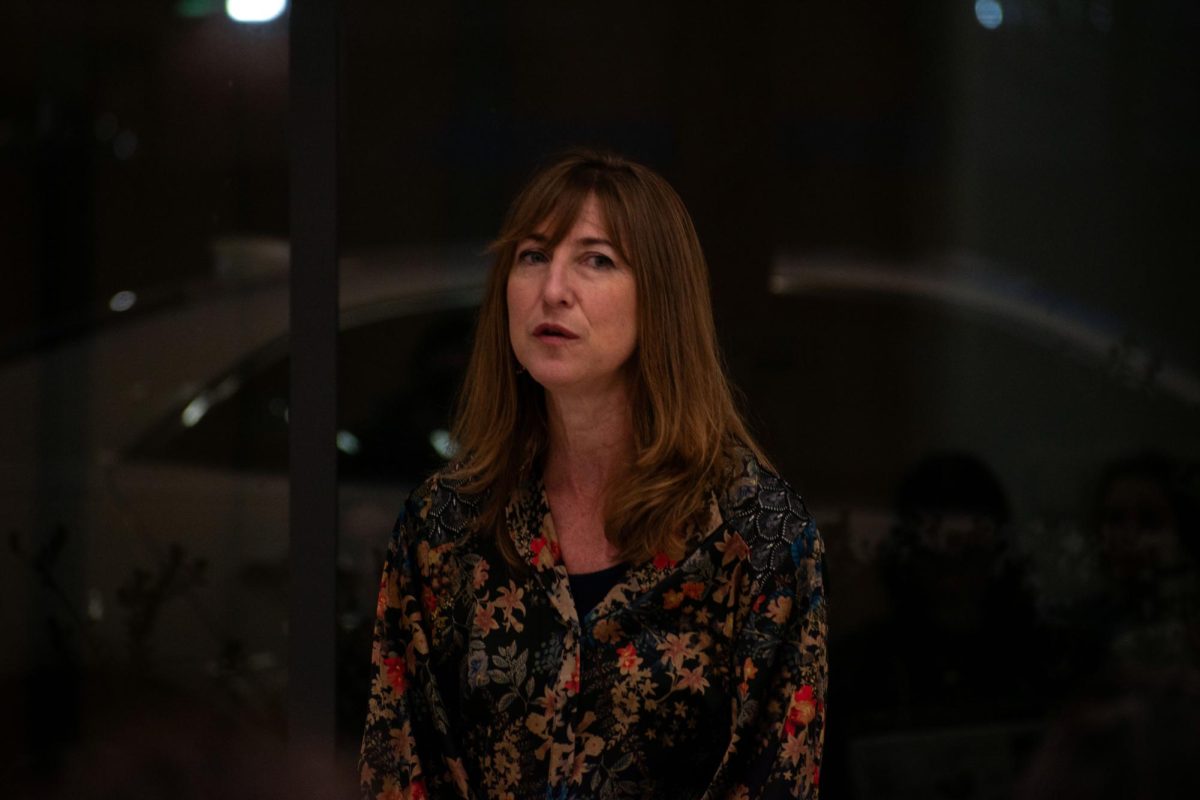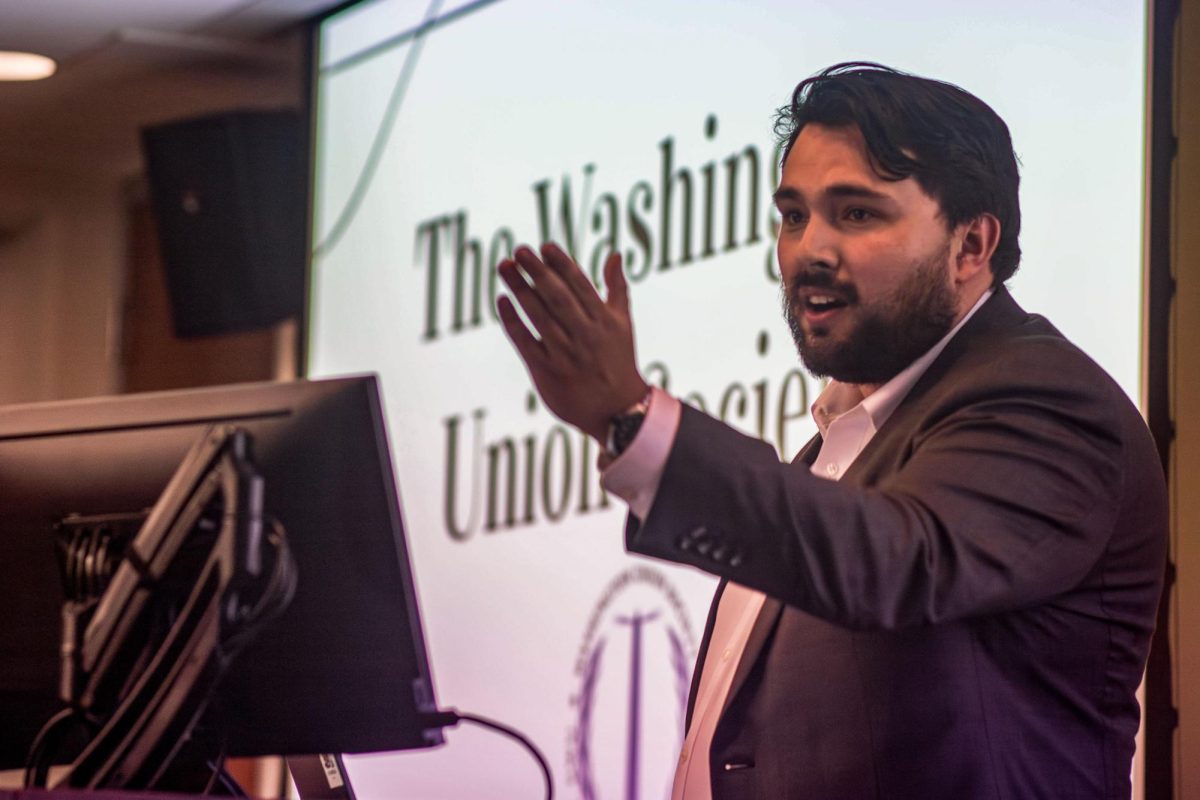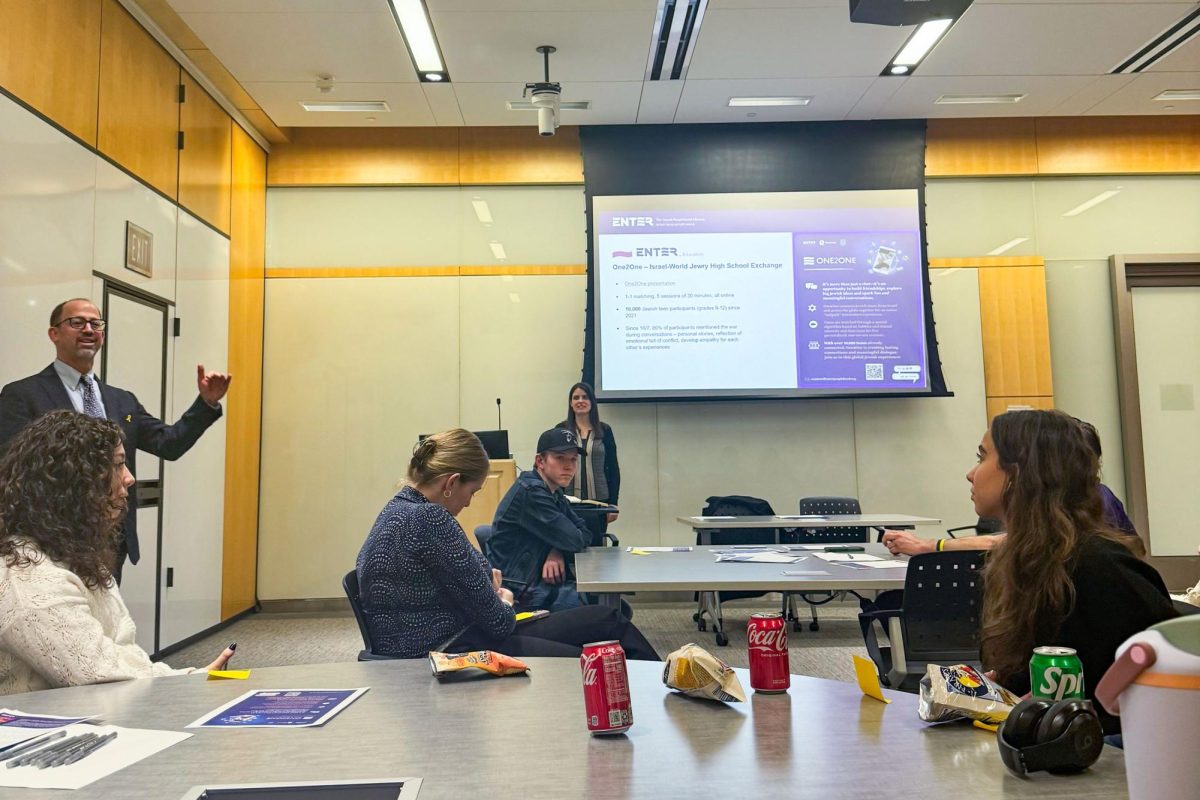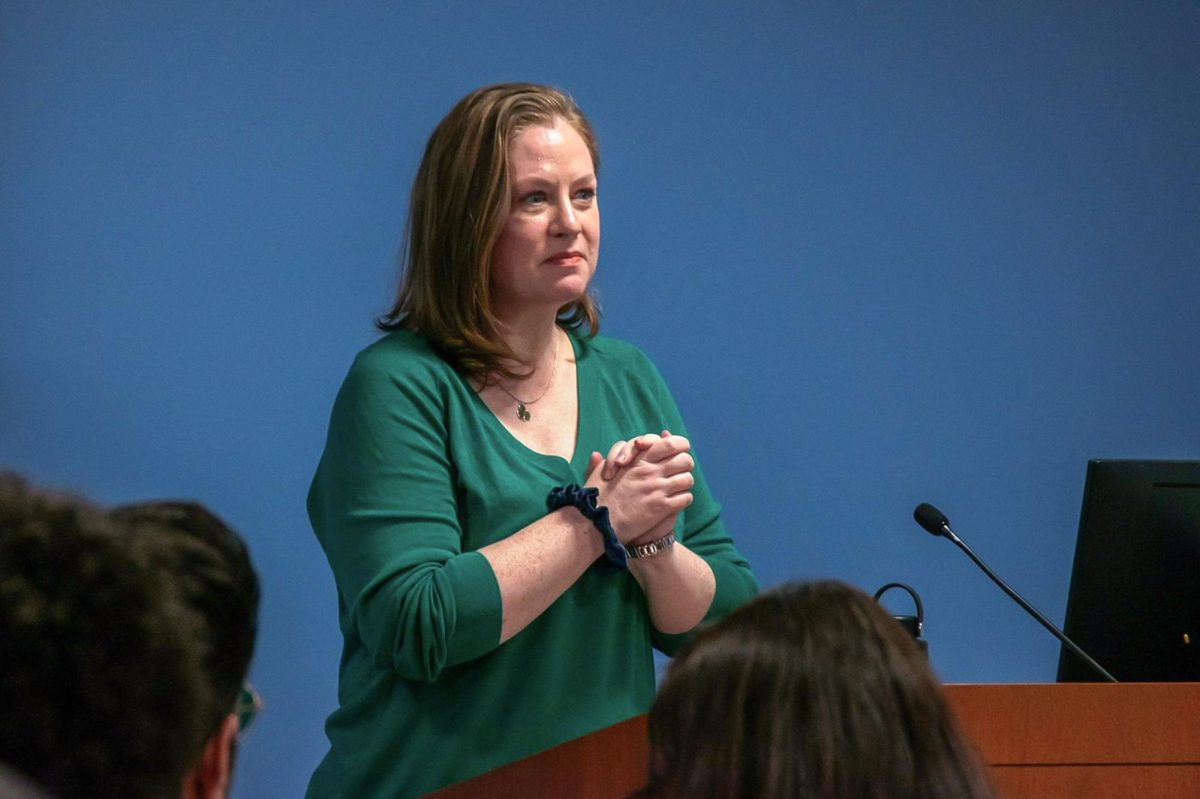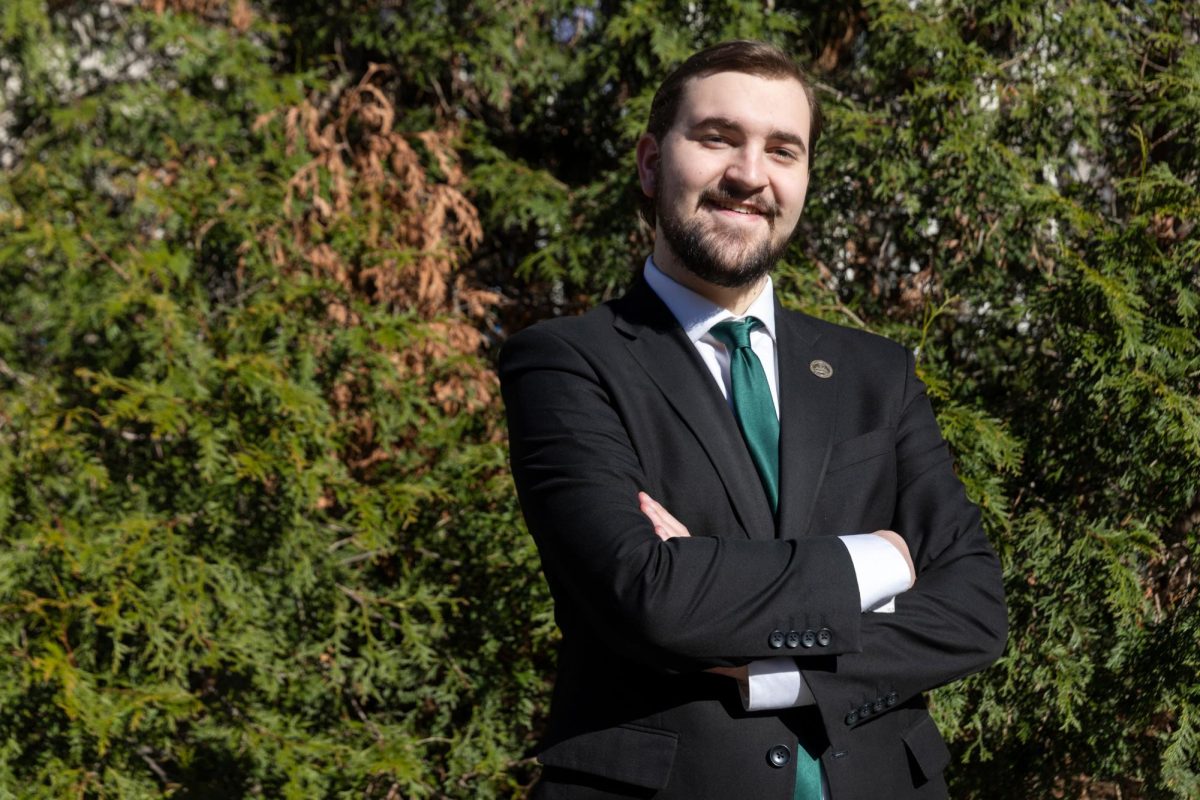An Israeli political scientist responded to the recent demonstration at Gelman Library and discussed the ongoing war between Israel and Hamas at the GW Hillel Building on Wednesday.
Dahlia Scheindlin, author of “The Crooked Timber of Democracy in Israel: Promise Unfulfilled,” said she feels Students for Justice in Palestine at GW’s projections on Gelman Library last month were “all for the attention” because they don’t contribute to de-escalation of tensions surrounding the Israel-Hamas war. J Street U At GW, a nonprofit dedicated to promoting peace between Israelis and Palestinians, hosted the event, which was moderated by Ted Lazarus, an international affairs professor.
Four students from GW SJP projected about 10 messages onto Gelman Library, including “End the siege on Gaza,” “Free Palestine from the river to the sea,” “Glory to our martyrs,” “Your tuition is funding genocide in Gaza” and “President Granberg is complicit in genocide in Gaza.” After demonstrating for about two hours, officials and two GW Police Department officers shut down the projections, which University President Ellen Granberg condemned as antisemitic in a statement the following day.
Scheindlin said Israelis and Palestinians would view the use of “martyr” in the projections differently because of differing translations between English, Hebrew and Arabic. She said Palestinians would interpret the word “martyr” as anybody who has died as a result of the war, while Israelis and Jewish people see it as glorifying Hamas.
“When I saw the ‘glory to the martyrs’ thing, it seemed to me like it was glorification of the attack,” said Scheindlin. “But I am also aware that some people won’t see it that way.”
Scheindlin said “free Palestine from the river to the sea” is a complicated phrase because Palestinians interpret it to mean that the region should belong to Palestinians and Israelis interpret it as Palestinians not wanting Israel to exist.
Scheindlin said the debates she has seen among people in Israel and Palestinian territories who want to advance dialogues around the conflict don’t have the “craziness” that debates about the conflict have in the United States. She said the response to the conflict in the U.S. has become “unhinged” because there are people who aren’t connected to the issue who feel the need to take a “zero-sum position.”
“We’re seeing a level of fetishization, by which I mean people who are totally invested in this without having any real connection to the reality of what it is,” Scheindlin said.
Scheindlin said she is not against everything Palestinians want like freedom, self-determination and an end to “oppressive” policies in the Gaza Strip. She said she opposes people who do not look at the facts of what is happening between Israel and Gaza.
“What I do oppose is when people cannot admit that there have been atrocities committed, war crimes, basic violation of human morality and slaughter of Israeli citizens,” Scheindlin said.
Scheindlin said Israeli citizens are deeply distrustful of their own government because about 20 percent of Israeli Jewish people trust the government. She said this low level of trust is because democracies like Israel have a series of checks and balances, a constitution or regional representation — characteristics Israel lacks.
“The electoral system is purely proportional representation. You get 3.25 percent of the vote, you’re in Parliament,” Scheindlin said.
She said when countries go to war, people tend to trust their government more, but Israeli civilians choose to trust each other to get through wartime. She said Israeli citizens have mobilized on donation drives to bring supplies to people in southern Israel who were affected by the attack.
“People are feeling very, very encouraged I think by the level of social solidarity from society but feeling very abandoned by the government,” Scheindlin said.


